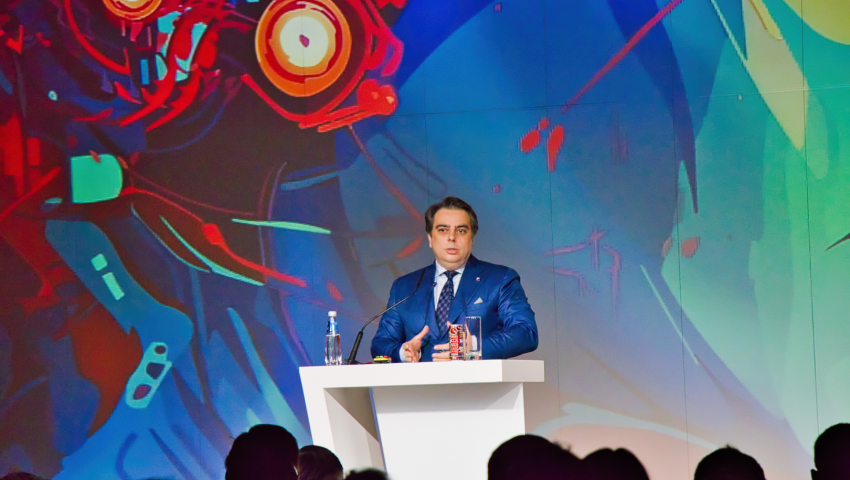Asen Vasilev: What can pull us forward is the investment in human capital

"There are always three factors of production at the base of the economy: physical capital, human capital and labor as effort. Some time ago, the models of the 18th century also put the earth in there. Land is no longer a factor of production. It is a small part of specialized capital, since the economic base has changed. What is likely to happen is that labor will cease to be a factor of production and we will go to human and physical capital.' This was stated by Finance Minister Asen Vasilev at the opening of the Digital Trends 2023 business forum in Sofia.
According to him, for many years our economic development has been subordinated to an extremely mistaken philosophy - to sell cheap labor. We can't get rich if we sell cheap labor. Having high wages, your labor is not cheap, i.e. you eat away your competitive advantage, he is emphatic. "Physical capital includes everything from machines to fast rail transport, to good roads, to normal infrastructure, to fast internet if you want, which we take for granted, but it's not a given at all in many places in the world. And this physical capital actually allows people to produce much more," Minister Vasilev added.
"There are two very difficult tasks ahead of us. One is to raise the level of physical capital in the economy, which becomes relatively easy and labor becomes more expensive. What we have been doing in the last year and a half is that we have started to condition the maximum state aid that the EU allows for investments in Bulgaria, so that you receive the money when you make the investment, and not before, so that there are no abuses and this is starting to raise the level of physical capital little by little," he pointed out.
According to Minister Vasilev, however, what can pull us forward is the investment in human capital, education and skills. He highly appreciated the policy of raising teachers' salaries and the appointment of young teachers, which started a few years ago and continues, but pointed out that the most difficult task is yet to come - for the adequate content of the curricula and the quality of the educational process. "Thanks to better pay, we currently have young teachers, but we need to change the education system itself. Our schools are not ready to prepare people who can create and think outside the framework and boundaries. Art, sports and disciplines that give breadth of thinking are almost out of the curriculum. The school prepares personnel for the mid-19th century with the skills to do repetitive tasks. This will soon be done by machines and we will have to learn how to create, how to invent new models and use machines and knowledge so that we make the world a better place," said the minister. According to him, artificial intelligence will take away the jobs of people whose work is repetitive, but not of people whose work requires human contact and creativity.
